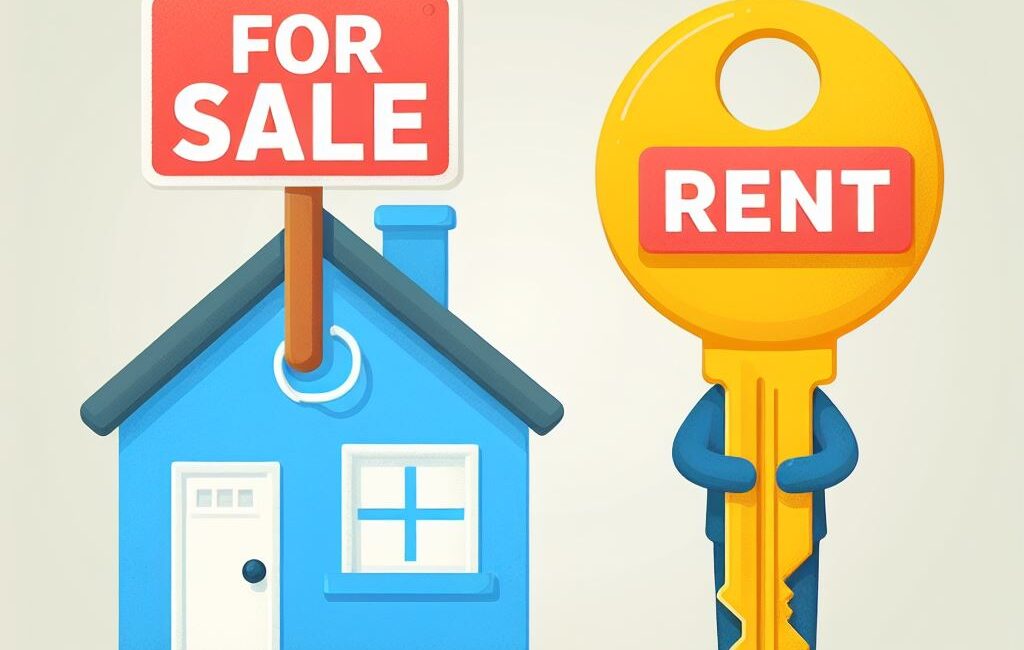In today’s dynamic real estate market, the decision to buy or rent a home is a significant financial consideration that requires careful evaluation of various factors. While homeownership has long been considered a cornerstone of the American Dream, renting offers flexibility and affordability that may be appealing in certain situations. So, which option makes more financial sense in today’s market? Let’s explore the pros and cons of buying versus renting to help you make an informed decision.
Title: Buying vs. Renting: Which Option Makes More Financial Sense in Today’s Market?
In today’s dynamic real estate market, the decision to buy or rent a home is a significant financial consideration that requires careful evaluation of various factors. While homeownership has long been considered a cornerstone of the American Dream, renting offers flexibility and affordability that may be appealing in certain situations. So, which option makes more financial sense in today’s market? Let’s explore the pros and cons of buying versus renting to help you make an informed decision.
Buying a Home:
Pros:
- Building Equity: One of the most significant advantages of homeownership is the opportunity to build equity over time. As you pay down your mortgage and the value of your home appreciates, you’re essentially investing in your future wealth.
- Stability and Security: Owning a home provides stability and security, knowing that you have a place to call your own and the freedom to customize and personalize your living space.
- Tax Benefits: Homeownership offers several tax benefits, including deductions for mortgage interest, property taxes, and certain closing costs, which can help reduce your overall tax burden.
- Potential for Appreciation: Historically, real estate has shown appreciation over the long term, allowing homeowners to potentially increase their net worth through property appreciation.
Cons:
- Upfront Costs: Buying a home typically requires a substantial upfront investment, including a down payment, closing costs, and ongoing maintenance expenses.
- Market Volatility: Real estate markets can be subject to fluctuations in property values, interest rates, and economic conditions, which can impact the value of your investment.
- Responsibility for Maintenance: As a homeowner, you’re responsible for maintaining and repairing your property, which can incur additional time and expenses.
- Lack of Flexibility: Homeownership ties you to a specific location, making it less flexible than renting if you need to relocate for work or other reasons.
Renting a Home:
Pros:
- Flexibility: Renting offers flexibility to move more frequently without the financial commitment of homeownership, making it ideal for individuals who value mobility or are uncertain about their long-term plans.
- Lower Upfront Costs: Renting typically requires less upfront investment than buying a home, as you’re not responsible for a down payment or closing costs.
- Fixed Monthly Expenses: Renters have predictable monthly expenses, as rent payments typically remain stable throughout the lease term, making it easier to budget and plan financially.
- Minimal Maintenance Responsibilities: Renters are generally not responsible for property maintenance and repairs, as these tasks are typically the landlord’s responsibility.
Cons:
- Lack of Equity Building: Unlike homeownership, renting does not provide the opportunity to build equity in a property, meaning you’re not investing in a tangible asset that can appreciate over time.
- Limited Control and Personalization: Renters have limited control over their living environment, as they must abide by the terms of their lease and may be restricted from making significant changes to the property.
- No Tax Benefits: Renters do not benefit from the same tax deductions and incentives available to homeowners, such as mortgage interest deductions and property tax deductions.
- Risk of Rent Increases: Renters are vulnerable to rent increases at the end of their lease term or upon lease renewal, potentially impacting their housing affordability over time.
Ultimately, the decision to buy or rent a home depends on your individual financial situation, lifestyle preferences, and long-term goals. While homeownership offers the potential for equity building and long-term stability, renting provides flexibility and affordability in the short term. Consider factors such as your financial readiness, housing market conditions, and personal priorities when determining which option makes the most sense for you in today’s market. Whether you choose to buy or rent, it’s essential to carefully weigh the pros and cons and make a decision that aligns with your unique circumstances and aspirations.



